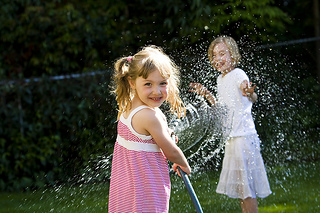Caring for Your Cat’s Dental Health
July 5th, 2018

While you make sure your family is getting the best care possible, with regular dental checkups and cleanings at our Creve Coeur, MO and St. Charles, MO office, there is one family member that might be hiding under the bed when it’s time for tooth care. Periodontal disease is the most common clinical condition affecting adult cats—and it is completely preventable!
Periodontal disease starts when the bacteria in your pet’s mouth form plaque. The plaque can harden into tartar, and, if plaque and tartar spread under the gum line, can be responsible for a number of serious problems. Tooth loss, tissue damage, bone loss, and infection can be the result of periodontal disease. Professional dental treatment is important if your cat is suffering from periodontal disease, and your vet can describe the options available to you.
But, like with humans, prevention is the best way to assure these problems never develop, and there are several methods for avoiding plaque and tartar build-up.
Brushing: Yes, there are toothbrushes and toothpastes specifically designed for your cat! If a toothbrush is not working for you or your pet, there are cat-sized finger brushes available as well. Daily brushing is most effective, but try for at least several times each week. The process of introducing brushing should be a slow and gentle one, and seafood and poultry flavored pastes make the process more palatable. (Human toothpaste is not good for your cat due to its abrasiveness, and swallowing the foam might pose a danger to your pet.)
Anti-plaque rinses and gels: If despite your gentle persistence your cat simply will not cooperate with brushing, there are other options! Rinses and gels containing Chlorhexidine are effective and do not usually pose a problem for pets—although they might not take to the flavor. Rinses can be squirted inside each cheek or gels can be applied to the teeth with a toothbrush or finger brush. Talk to your vet to find the safest and most effective products.
Diet: Whether they use a particular shape and texture to simulate brushing or an anti-tartar ingredient, several pet foods claim to reduce the accumulation of plaque and tartar. Your vet is the best resource for nutritional suggestions to make sure your cat’s dental and physical diet is as healthy as it can be.
Whether you try brushing, rinses, gels or a tooth-friendly diet, patience and a gentle touch are the best way to introduce dental hygiene. Talk to your vet at your cat’s next checkup, and find out what you can do to keep your feline friend healthy and happy. An ounce of prevention might be worth a pound of purr!






